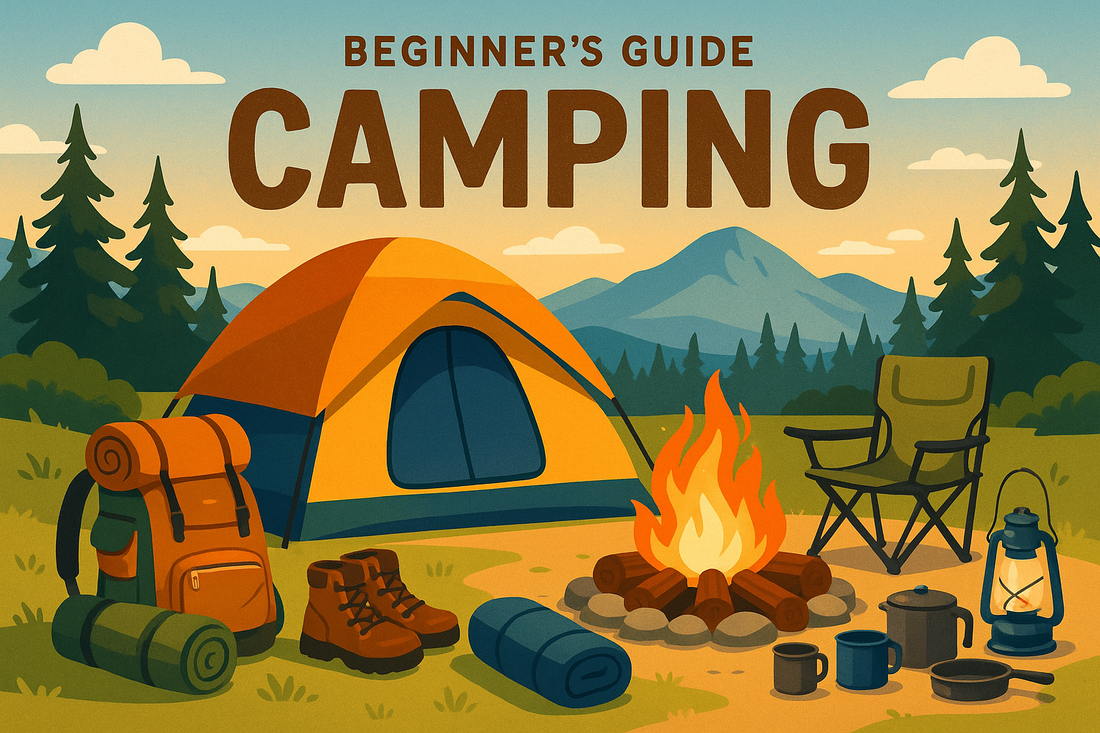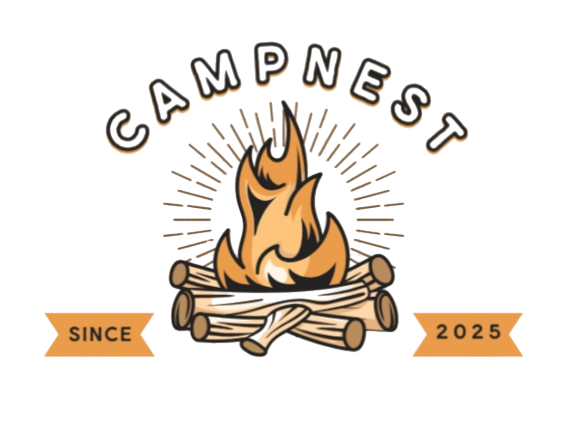
The Ultimate Beginner’s Guide to Camping
Share
Camping is one of the most rewarding ways to reconnect with nature, unwind, and enjoy quality time with friends or family. But if you’ve never been camping before, the idea of packing tents, sleeping bags, and cooking gear can feel overwhelming. Don’t worry! This guide will walk you through everything you need to know to have a safe, fun, and memorable camping experience—even if it’s your very first time.
Why Camping is Worth Trying
Camping offers more than just a break from your routine. Here’s why you should give it a try:
-
Reconnect with nature: Breathing fresh air, hearing birds sing, and walking through scenic trails can reduce stress and boost your mood.
-
Digital detox: Step away from screens and enjoy the simplicity of the outdoors.
-
Bond with friends or family: Shared experiences around the campfire create lasting memories.
-
Affordable adventure: Camping is often cheaper than hotels or resorts, making it accessible for everyone.
Choosing the Right Camping Spot
The first step to a successful camping trip is picking the right location. Here are some tips:
-
Start small: For your first trip, choose a local campground or state park with basic amenities like restrooms and running water.
-
Consider your activities: Do you want hiking, fishing, kayaking, or just a peaceful retreat? Make sure the site matches your interests.
-
Check the rules: Some campsites require reservations, permits, or have fire restrictions. Always verify before you go.
-
Accessibility: Consider how far you’re willing to travel and whether the terrain suits your skill level.
Essential Camping Gear for Beginners
Packing the right gear is key to a comfortable trip. Here’s a beginner-friendly checklist:
-
Tent: Choose one that fits your group and is easy to set up.
-
Sleeping bag: Select a bag suitable for the season’s temperatures.
-
Sleeping pad or air mattress: Adds comfort and insulation from the ground.
-
Camping stove or portable grill: Even simple meals taste better outdoors.
-
Cookware and utensils: Lightweight pots, pans, plates, and cutlery.
-
Headlamp or flashlight: Don’t forget extra batteries.
-
Clothing: Layered clothing for warmth and rain protection.
-
First aid kit: Include basics like bandages, antiseptic, and pain relievers.
-
Food and water: Pack easy-to-cook meals, snacks, and plenty of water.
Optional but helpful items:
-
Camping chairs
-
Cooler for perishable items
-
Insect repellent and sunscreen
-
Map, compass, or GPS device
Setting Up Your Campsite
Once you arrive, follow these tips for a smooth setup:
-
Pick a flat spot: Avoid slopes and low areas where water can collect.
-
Clear debris: Remove rocks, sticks, and other hazards from your tent area.
-
Tent setup: Follow the instructions carefully. Stake it securely and use a ground tarp for extra protection.
-
Organize gear: Keep cooking, sleeping, and hiking items in separate areas for convenience.
-
Fire safety: If fires are allowed, set up a fire pit away from tents, trees, and dry grass. Always have water nearby.
Beginner-Friendly Camping Activities
Camping isn’t just about setting up a tent—it’s about exploring and enjoying nature. Here are some fun activities for beginners:
-
Hiking: Choose trails suited to your fitness level. Don’t forget water and a trail map.
-
Fishing: Many campgrounds have lakes or rivers where fishing is allowed.
-
Stargazing: Bring a blanket, lie back, and enjoy the night sky.
-
Campfire cooking: Try marshmallows, hot dogs, or foil packet meals.
-
Wildlife spotting: Keep a safe distance and respect animals’ space.
Safety Tips for First-Time Campers
Your safety should always come first:
-
Know the weather: Check forecasts and prepare for rain, heat, or cold.
-
Stay on trails: Avoid wandering into unfamiliar or dangerous areas.
-
Store food properly: Use bear-proof containers or hang food in trees if in wildlife areas.
-
Stay hydrated: Drink plenty of water, especially in hot weather.
-
Tell someone your plans: Share your campsite location and expected return time.
Leave No Trace: Respect Nature
Part of being a responsible camper is minimizing your impact on the environment:
-
Pack out all trash and recyclables.
-
Avoid damaging plants or disturbing wildlife.
-
Use designated fire pits and follow campfire rules.
-
Stick to marked trails to prevent soil erosion.
Final Thoughts
Camping can be a magical experience, especially for beginners who approach it with preparation and curiosity. By choosing the right location, packing the essentials, and following basic safety tips, you’ll be ready for an adventure in the great outdoors. Remember, the key is to relax, enjoy the fresh air, and create lasting memories.
Your first camping trip might feel like a challenge, but with the right mindset, it can become the start of a lifelong love for the outdoors.
